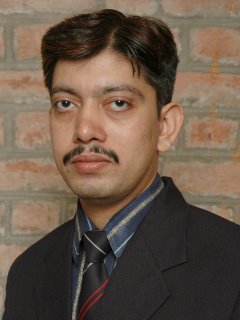Ye na thi hamari kismet ki visaal-e-yaar hota,
Agar aur jeete rahte, yahi intzaar hotaa.
Tere wade par jiye hum, to ye jaan jhooth jaana,
Ki khushi se mar naa jaate, agar aitbaar hota
Koi mere dil se pooche, tere teer-e neemkash ko,
Ye khalish kahan se hoti, jo zigar ke paar hota.
Ye kahan ki dosti hai ki bane hain dost naaseh,
Koi chara saaz hota, koi gam- gusaar hota
Kahoon kis-se main ki kya hai, shab-e-gham buri bala hai,
Mujhe kya bura tha marna, agar ek baar hota.
Hue mar ke hum jo ruswa, hue kyon na gark-e-dariya,
Na kabhi janajaa uthta, na kahin mazaar hota.
Yeh masayile tasawwuf, yeh tera bayaan Ghalib,
Tujhe hum wali samajhte, jo na badakhwar hota
Agar aur jeete rahte, yahi intzaar hotaa.
Tere wade par jiye hum, to ye jaan jhooth jaana,
Ki khushi se mar naa jaate, agar aitbaar hota
Koi mere dil se pooche, tere teer-e neemkash ko,
Ye khalish kahan se hoti, jo zigar ke paar hota.
Ye kahan ki dosti hai ki bane hain dost naaseh,
Koi chara saaz hota, koi gam- gusaar hota
Kahoon kis-se main ki kya hai, shab-e-gham buri bala hai,
Mujhe kya bura tha marna, agar ek baar hota.
Hue mar ke hum jo ruswa, hue kyon na gark-e-dariya,
Na kabhi janajaa uthta, na kahin mazaar hota.
Yeh masayile tasawwuf, yeh tera bayaan Ghalib,
Tujhe hum wali samajhte, jo na badakhwar hota
(Meeting the beloved, half drawn arrow, pain/ inflammation, an evening of sorrow, possessed by the river, drunkard)
o Ghalib says- Meeting the beloved was not his destiny; had he lived longer, the yearning would have continued.
o He continues- "But don’t you believe that I lived trusting your promise (that we will meet). I would have died of happiness if I’d believed your promises".
o But then why does Ghalib live for? He says, “Ask my heart, the impact of your arrow from a bow with a slack string ; why would this pain be if the arrow had pierced through the heart (had the string not been slack). Which means, now the arrow could not pierce through the heart and so he still lives on with an arrow struck in his heart that causes this pain”
o "Even Ghalib’s friends are betraying him, instead of sharing his pains and finding the ways out, they are preaching before him".
o "He is wordless to explain how sad is a night of sorrow (of separation); had death come once, he would have preferred it to ‘dying again and again’ (which is happening now) ".
o "Ghalib laments the slander after his death (obviously here his failed love), wishes he had drowned in a river. There would have been no funeral procession for him, no grave either; where the people are reminded of him and where they slander again".
o "These words of wisdom, the words of Ghalib- he would be counted amidst pious/ wise men, had he not been a drunkard".
Once again a varied interpretation of the last couplet from the explicit one could change the interpretation of the ghazal. If Ghalib were a Sufi poet (which is still opinionated), in this ghazal he could be talking about his quest to reach the God despite his human passions that were maligned by his rivals.

No comments:
Post a Comment